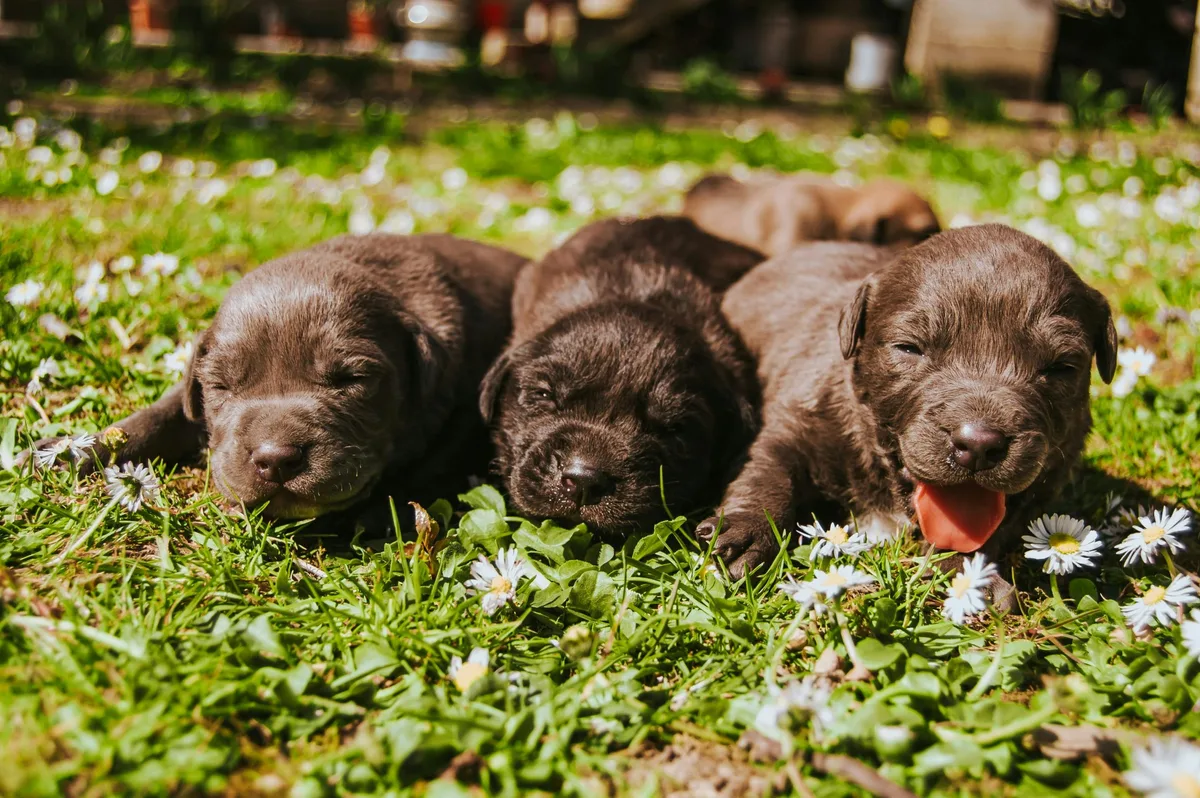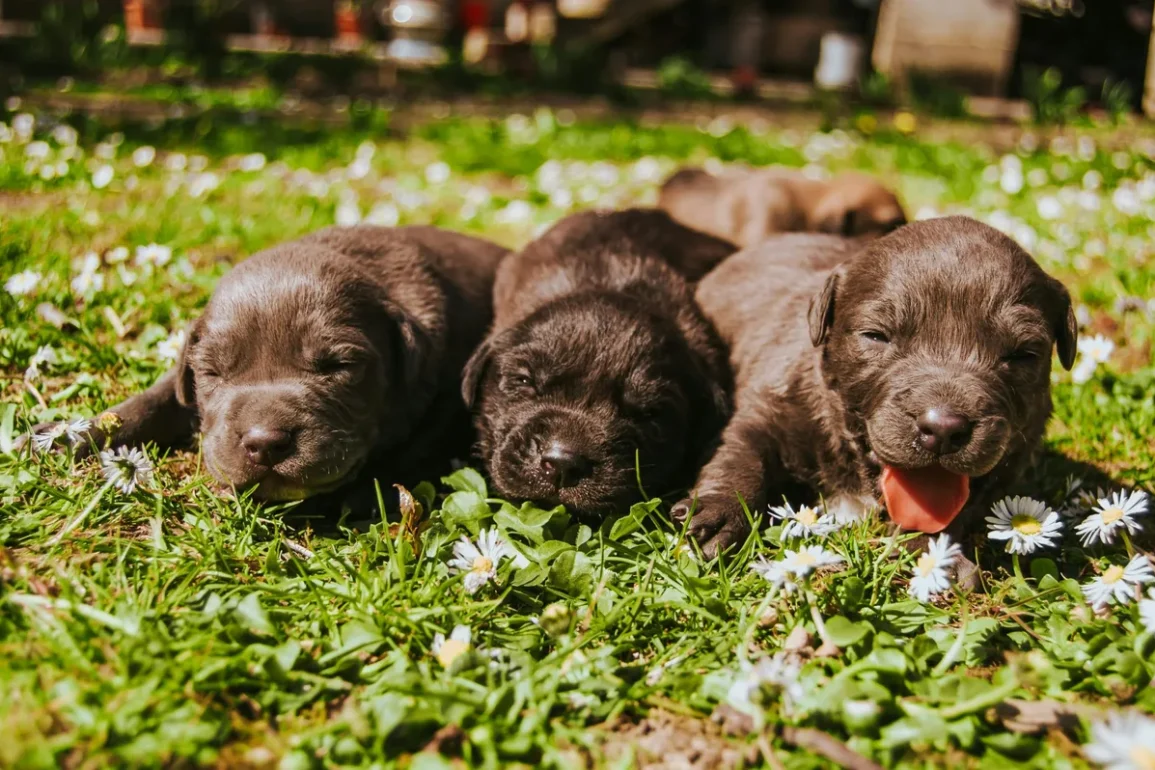I’ll never forget the day my wife and I drove to pick up our miniature schnauzer puppy. She was just four weeks old and could sit upon my palm. On the way home, I sat with her on the back seat as she cosied up to my lap, looking up at me with those big, adorable eyes.
In the weeks and months that followed, we used to joke that it felt like a dress rehearsal for having a human baby.
These days, an increasing number of people seem to be thinking this way, identifying as “dog parents” and seeing their furry friends as substitute children.
In a new paper in the European Psychologist, a pair of researchers at ELTE Eötvös Loránd University in Budapest – Laura Gillet and Prof Enikő Kubinyi – have drawn attention to this trend and raised the question of whether it’s related to the parallel decline in human fertility rates worldwide.
As it happens, my wife and I ended up having human twins a few years after we got Ruby. But amidst the cost-of-living crisis and a growing emphasis on individualistic values, could it be that many people are choosing to have dogs in place of children?
Growing pup-ulation
In the UK, fertility rates are at historic lows: in 2023, we were averaging 1.44 children per woman (the figure needs to be over 2 to sustain a population), with the number of live births at 591,072, the lowest annual figure since 1977. Yet at the same time, dog ownership is on the rise, especially among younger generations.
There are over a million more pet dogs in the country today than there were ten years ago, and 45 per cent of owners are millennials. Anecdotally, we’re increasingly treating dogs like little people. At our local cafe, you can order a puppuccino, and many owners are setting up their dogs’ own social media accounts.
In their paper, Gillet and Kubinyi make the case that humans have an evolved instinct for caregiving, while at the same time, through thousands of years of domestication, dogs have evolved to press many of our caregiving buttons.
For instance, we’re drawn to the cute characteristics of baby faces, such as large eyes and tall foreheads, which dogs share. Indeed, many popular breeds display ‘paedomorphosis’, which is the retention of juvenile appearance through adulthood.

There’s evidence to suggest dogs are well placed to act as substitute children. A brain imaging study from 2014 showed that when mothers looked at their dogs, it activated similar neural networks as when they looked at their human children, especially across mid-brain regions related to the experience of reward.
Another study from 2015 found that when owners gazed into the eyes of their dogs, it triggered increases in the neurohormone oxytocin, which has many functions but is often associated with bonding and is known to be important for mother-infant interactions.
You may also have noticed that many owners talk to their dogs in a way that resembles mothers’ high-pitched and engaging talk to their infants, known as motherese.
Gillet and Kubinyi draw many other parallels between the parenting of humans and the ownership and caring of dogs. For instance, psychologists have long identified that human children can develop different attachment styles, such as secure and insecure, that relate to their behaviour when with their parents or apart from them. These attachments are largely shaped by the emotional consistency of their parents.
Research with dogs shows that they similarly form close attachments to their owners that match the categories seen in humans. Just as with humans, the dogs’ attachment style is influenced by their owners’ caring approach, such as how nurturing or authoritarian they are.
There’s even evidence that dog owners can experience something akin to the ‘baby blues’ – the intense and sometimes difficult emotions experienced by mothers in the aftermath of childbirth. As a 2024 study put it, “emerging evidence suggests that puppy owners may undergo ‘puppy blues’, encompassing feelings of emotional strain, anxiety about responsibility and challenges in adapting to the changes brought by a new puppy.”
If caring for a puppy can simulate many aspects of becoming a mum or dad, is it a shrewd move to become a dog parent rather than a baby parent? It will certainly cost you less money and interfere less with your career. And I can say from personal experience that poop-a-scooping is probably easier than nappy changing, though neither are a bundle of laughs.
But are dog parents destined to be happier than human parents? This is where the picture gets complicated.

Photo Credit: Getty – Photo credit: Getty
Leash on life
Parenthood of the human variety seems to bring a short-term happiness penalty. Parents-to-be tend to experience a period of anticipatory joy, but then they experience a decline in happiness over the first few years of parenthood, likely due to the gruelling demands of the job.
This penalty gradually fades, and then they return to their pre-parenthood levels. These findings have been something of a shock to many people who assume that becoming a parent is the most joyful thing you can do in life.
But a lot of this comes down to how you choose to measure happiness, including whether you’re talking about in-the-moment pleasure or the long-term satisfaction of reflecting on a life well spent. Many parents will say that having children was the most meaningful experience of their lives.
What about dog owners? Again, the picture is complicated, and a lot of the big longitudinal studies involve pets generally rather than dogs specifically. That said, there are parallels with the parenting literature in that the pet ownership experience isn’t always as rosy as you might expect.
For instance, a large systematic review of 54 studies of the quality of life of dog and cat owners found that only 31 per cent showed a clear positive impact, compared with 9 per cent showing a negative impact.
As with the parenting story, the mixed findings for dogs (and pets generally) are probably due to the emotional challenges of being a dog owner, including the demands of nurturing them and the worries of keeping them safe.
There are also other factors, such as your financial situation and the kind of society you live in. Parental happiness tends to be higher in nations that have more child-friendly policies.
For both dog and human parents, age could make a difference, too. For instance, people who become parents in their thirties tend to be happier than those who become parents in their early twenties. Among elderly dog owners specifically, there’s clear evidence that their canine companions can help alleviate loneliness.
There are also other boons from owning a dog, such as encouraging you to do more physical exercise and giving you the opportunity for chance social encounters with other dog walkers.
In the case of babies versus puppies, weighing them against each other as tools for achieving happiness is probably the wrong perspective. What they both offer – in their own cute and trying ways – is an outlet for the deep-seated human instinct to care and nurture, one of the better angels of our nature that is worth celebrating, however we choose to satisfy it.
Read more:
This post was originally published on this site be sure to check out more of their content.













































